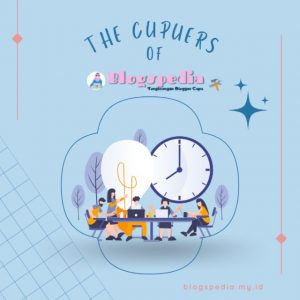 |
| Image by Firecat_the_potato from Pixabay |
Multilingualism is not uncommon to people today. Most people know or use more than one language. I myself use Javanese, Indonesian, and English in daily life. I know Turkish and learned a bit of Italian (although I already forgot), and know some words in popular world languages, like Arabic, Japanese, or Korean. At least I know how to say hi in many languages in case I encounter a foreigner. What about you? How many languages do you know?
What is multilingualism? Multi means many. Lingua means language. Multilingualism refers to the use of many languages by a person, or a group of people. The individuals who use many languages are usually called polyglots.
As I mentioned previously, many have been asking me how I learned English as my second language and use it in my daily life, so I wrote an article about 6 keys to learning English. In this post, I will go more general into how people can acquire a new language. Yeah, many people know more languages, why don’t you get a new one, too?
Disclaimer: I am a NOT language expert. I am just a physics teacher, teaching physics using English as the medium of instruction, and most of my students also use English as their second language. The information in this article I synthesize from another article in Mata Air and also from my experience in observing people.
Mother Language versus Second Language
From the many languages that we know, we can divide them into two categories: mother language and second language.
Mother language is the language that we learn unconsciously when we were a child, by observing, listening, speaking, and interacting with people, usually our family and neighborhood. For example, my mother languages, or mother tongue, are Javanese and Indonesian.
Second Language is the language we learn after that, usually at school. We memorize the words and the language structures. We learn the grammar and the pronunciation. English, for example, is my second language. I started to learn it in elementary school.
It is very interesting that, according to research, these two types of languages are stored in different parts of the brain. Mother language is stored in the brain’s left hemisphere, while second language is stored in the brain’s right hemisphere. This shows that the languages are acquired and processed differently.
When we were babies, we acquired language naturally, unconsciously, from our surroundings. This is what we call language acquisition. We didn’t learn the language structure intentionally, but we would feel something is off when what we hear is not following the language structure.
When we begin school, we are taught a new language, consciously. We learn vocabulary and language structure. This is what we call language learning.
Can Adults Acquire a New Language?
We often believe that adults can only do language learning, not language acquisition. However, research suggests that in fact adults can still do language acquisition. You might also observe in many cases where people move to a different country, they can unconsciously acquire the language used by people around them.
Language learning and acquisition are affected by the following three factors: high motivation, self esteem, and whether they feel too much worry or anxiety. In language acquisition, a language will be easily absorbed by children because they don’t have too much worry and they are not afraid to make mistakes. As they grow older, they become more shy and their language acquisition decreases.
If adults want to acquire a new language easily, they should not worry too much about making mistakes. I think this is also a reason why adults can easily acquire a new language in foreign country because when they make a language mistake, they feel it is normal because they are foreigners.
In language learning, motivation is more dominant. The greater a person’s motivation in learning a new language, the easier for him/her to learn a new language. So, if we still feel that learning a new language is difficult, we must ask ourselves: what is our greatest motivation to learn that language? Can this motivation be greater than our shyness?
Do We Still Need to Learn Foreign Languages in this Technologically Advanced World?
Indeed, today’s technology makes our lives much easier. Even without understanding a foreign language we can still use different tools and software to make inter-language communication feel seamless. I don’t deny that Google Translate is one of the most frequently used tools when I am writing. So, do we still need to learn new languages?
There are at least 3 benefits of learning new language according to the article:
- It can improve our cognitive skill
- It can increase creativity and brain’s ability
- It can prevent dementia and increase mental endurance
When Should I Start to Teach My Children a Second Language?
This is a question frequently asked by mothers: “English is an important language. When should I start to teach my kids English?”
From my experience, also from reading several other articles, it is important to first make sure that the children are already fluent in their mother language, before starting to learn a second language. If parents want to introduce English as a mother language, then it is okay to start English at a very young age (before school age). But make sure that the parents are fluent in English and use it for daily life. At this stage, children are very dominant in language acquisition. Let’s not teach our kids a mother language that is not used by their mother in everyday life. It is called mother language anyway. Let’s not teach our kids broken language structure just because we want them to know English so early while we are not yet fluent in the language.
After they absorb their mother language well (usually after starting school), then a second language can be added. Learning a second language will then be easier for them.
How the brain processes languages is still a mystery. How people can use language to communicate to other people is a gift from God. What do you think is the most interesting about languages? What new language do you want to learn? Feel free to comment below.














I learned Arabic in boarding Islamic School, but unfortunatelly I can't speak arabic... LOL. It's because I just learned about 'Nahwu shorof', then never practiced how to speak in the real life
ReplyDeleteI want to learn more Arabic, which is I already learn only a little. Chinese and Japanese will be the next language I want to.
ReplyDeleteI can speak only Bahasa Indonesia Mbak Nia. Kalau bahasa Korea tau juga satu atau dua kata dari drakor. English? Since I quit from the office. I don't use english language anymore. I think sudah lupa kayaknya 😁
ReplyDeleteI want to learn Arabic again. I want to understand when I read Quran.
ReplyDeleteEnglish is a language I want to master but it's very difficult
ReplyDeleteSometimes, when i learn new language i learn how to curse in that language. Hahaha..
ReplyDeleteI still wanna speak english fluently. Till now, read article in english is easy for me, but not for speaking